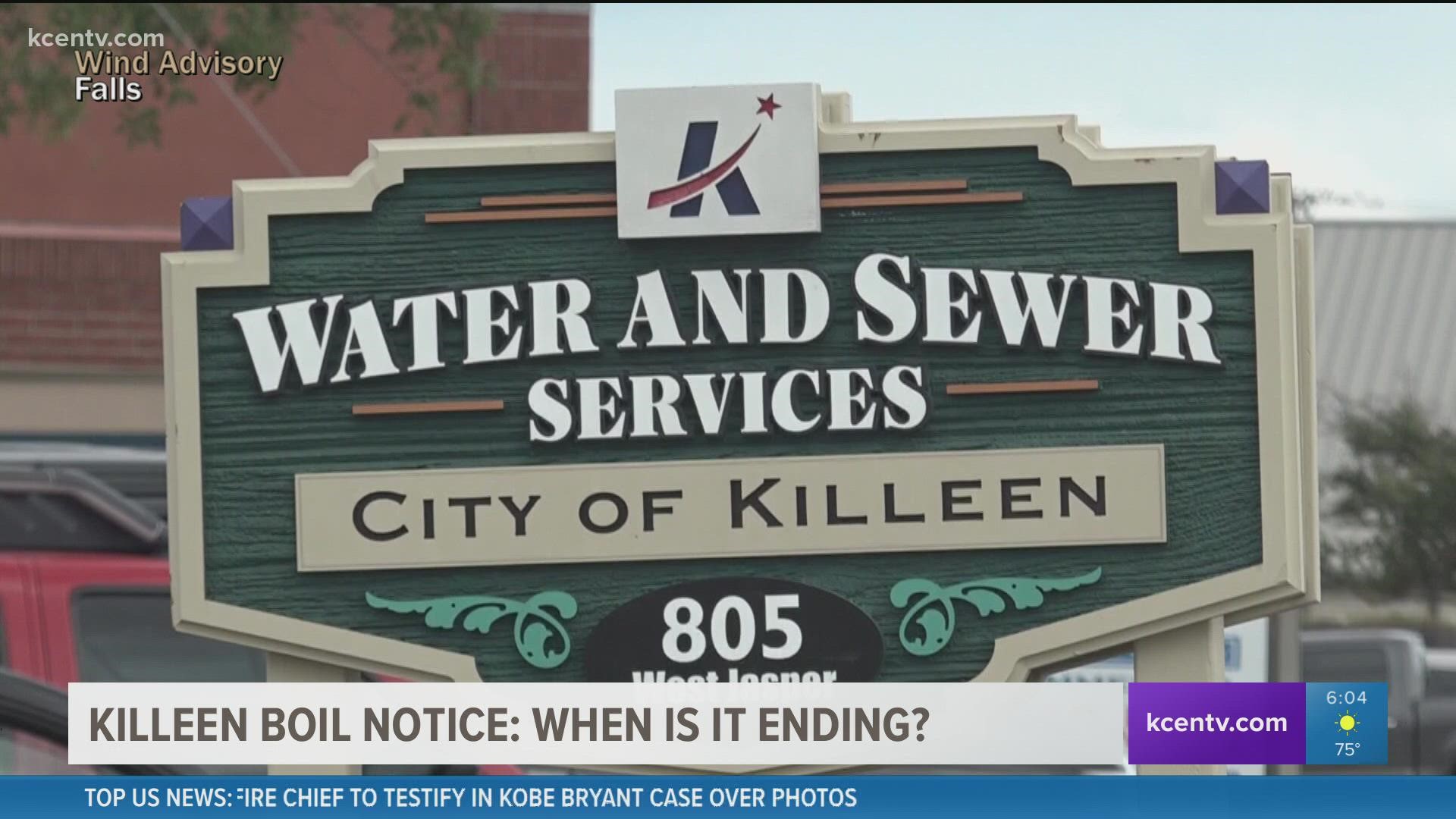KILLEEN, Texas — Killeen's city-wide boil water notice has now lasted more than a week. While the city had seen plenty of notices in the past, City Manager Kent Cagle made it clear this time was very different in the City Council Meeting Tuesday night.
"This one is much more difficult to explain but we'll give you and explanation and then try to have a discussion and answer your questions," Cagle told the council.
The issue that led to the boil water notice is called nitrification. It's not hard to explain:
Killeen gets its water from Bell County Water Control & Improvement District No. 1 (Called "WCID 1" below). It provides wholesale water service to Belton, Copperas Cove, Harker Heights, Nolanville and the Fort Hood Military Reservation.
Before sending water to those cities, WCID 1 disinfects the water with chloramines, which are commonly formed when ammonia is added to chlorine to treat drinking water.
Chloramines are susceptible to a process called nitrification. When chloramines are used as a disinfectant for a prolonged period of time, heat and stagnation can allow bacteria, sometimes called "biofilm," to grow in the water and eat the ammonia in chloramines, which destroys the disinfectant.
The minimum acceptable level for chloramines is 0.5 milligrams per liter and Killeen fell below that level last week.
Water Systems like WCID 1 can temporarily switch to a "free chlorine" disinfectant, which has no ammonia to starve bacteria and stop nitrification.
However, it seems WCID has never actually done this before last week. WCID General Manager Ricky Garrett told council members Tuesday his company does monitor for "nitrification factors," but has has not used this process.
"Why doesn't WCID cleanse regularly for biofilm at your location?" Councilwoman Melissa Brown asked Garrett Tuesday.
"It's never come up since I've been with WCID in terms of a need," Garrett said.
WCID 1 is now switching over to free chlorine, with no ammonia, for 30 days to starve bacteria in the system.
City of Killeen Executive Director of Public Works Jeffery Reynolds told councilmembers Tuesday the other cities that receive the water are also switching away from disinfectant with ammonia, though the process of bringing new water into the system has been slow.
"Due to no chlorine conversion in the past the speed of the conversion has been slower than everyone would like," Reynolds said.
While WCID is only now using a 30-day chlorine conversion, the City of Killeen had also had options to address the issue.
In the past, the Reynolds said Killeen would deal with rising nitrification by "deep cycling" its tanks, or completely flushing them out to deal with this issue.
Reynolds said other cities had systems that could boost the chlorine in its own system by installing equipment to infuse that disinfectant in the system after they get it. Now Killeen will be doing the same thing.
"We did not see the need, in the past, to boost the chlorine in the chlorinated water we are purchasing, but as I talked to other cities in Copperas Cove that are doing it. We think it is going to be a good practice going forward and they are being installed as we speak," Reynolds said.
Reynolds told the council some of that equipment is already installed. In fact, the Public Works Department started buying the equipment before calculating the full cost of the equipment.
"We haven't got the cost yet. It's an emergency situation and we took emergency action so I called in the experts to start installing. We'll absorb that cost," Reynolds told the Council.
City Manger Cagle told councilmembers the city had used chlorine injections in the past but stopped 10 years ago.
The City of Killeen sent water samples to be tested Tuesday afternoon and will decide Wednesday night if the boil water notice could be rescinded for at least part of the city.
Reynolds said Killeen would be handling the issue differently in the future.
"At the end of the day...creating a plan going forward when we do have an annual flushing of the system, conversion of the system, and we go to a system where we can boost (chlorine) in the city of Killeen... That's what we should be doing and that's what we've learned from this process here," Reynolds said. "When you know better, you do better. That's what we plan to do moving forward."
WCID 1 would also need to commit to an annual disinfectant conversion schedule where the system would switch away from chloramines in order to prevent nitrification.

